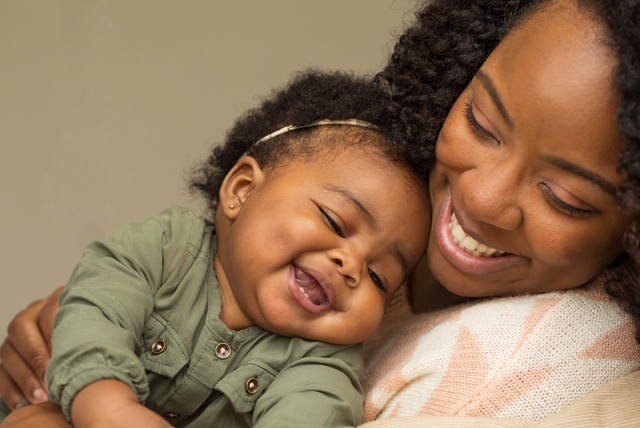If you feel your child is demanding a lot from you, it is time to take a closer look at your routines at home. Included are tips to help you regain control and create positive and lasting habits that will make your child calm and cooperative.
Setting regular routines greatly benefits children because they are equipped with conditions to meet everyday challenges with full capacity. So many of us are not aware of the importance of solid and consistent routines, and therefore we bring so much of our own chaos and insecurity into parenthood. We forget that parenting isn’t only about our children – it is much more about ourselves. Maybe in our mind we know which routines work best, but our actions speak the loudest.
When our Children Demand too Much
The other day I spoke with a mother in my private practice who was feeling powerless and bewildered because her eighteen month old child completely ruled both her and her husband. The baby simply cried and screamed when they didn’t do as the child wanted. When giving him healthy food choices, he cried until he got his yogurt. When putting him on a blanket to sit and play on his own, he cried hysterically until they brought him to their arms again. When putting him to bed, he would not stop crying until they surrendered and fell asleep with him. So they did as he commanded, because they didn’t wanted to hurt him and they needed the peace and quiet. However, they ended up feeling trapped and restricted and forgot almost why they had become parents to begin with.
We live in a world where there are a lot of choices, a lot of opportunities and a lot of insecurity. The fear and chaos todays society leaves with us makes it difficult to find peace within and create lasting routines because what we did yesterday already feels so far in the past. When everything changes rapidly, we don’t always know what to lean on. This results in us being divided by what we deeply believe in and what we hear from the outside world to be the best. It can feel confusing, and when feeling confused we can behave a bit more irrational and impulsive, which our children mirror and react to.
The one place where we can take control and rid of chaos is at home! We need the calmness, the collectedness and security that everything is as usual, because that makes us feel safe and capable to conquer the world outside of our safe space.
Coming back to the mother who sought help in my practice, I encouraged her to be polite but I also challenged her by asking if she really believed it was possible for an eighteen month old baby to control someone’s life – or if they as parents had forgotten that the child was merely a baby reacting to what they reflected on him?
The child wasn’t manipulative or consciously trying to destroy their happiness, he simply needed to meet the most basic needs. Parents need to remember to take responsibility for their child in order for them to develop in a healthy way where they are in control.
Until our children move away from home, they benefit from regular routines, which must happen at home.
Tip 1 – Morning routines:
I recommend that you are the first one awake in the morning, and get ready while the rest of the house is still sleeping before going to wake up your child. Take 3 minutes to be present when you first awaken the child – cuddle the child a bit – they will be relaxed and receptive to soaking up your love and therefore will start the day with positive feelings.
If the child is fairly self-driven: “Good morning Sweetheart, it is Wednesday and in a little while, you need to get out of the warm duvet and into your clothes. Once you’ve washed yourself and made yourself ready, come down and eat your breakfast. Okay?”
If the child still needs you to help with the morning routines, say, “Good morning, Lovely. It’s Wednesday morning and you have to wake up now. You can snuggle for 5 minutes to wake up slowly, and then I’ll come back and help you”. Then, only assist in those places where your help is really needed.
If you have the opportunity, it also provides a quiet and good start in the morning to eat breakfast together. A younger child may need a helping hand to hold the milk carton, but let them handle everything themselves, if possible. Find the rhythm that suits your family – just remember that even small routines feel nice and are good for the child – right down to the fact that they eat the same thing in the morning, always go out the door at the same time, always say goodbye in a certain way, etc.
The mornings should be quiet and consistent in order to give your child the best start to the day, with a clear mind and an openness to learn new things at school.
A negative and rushed morning schedule brings unrest and insecurity. It is not pleasant for anyone.
Tip 2 – Midday routines:
After a long day away from you, your child needs to feel connected to you again. This is the main reason many children are experiencing meltdowns. We simply don’t understand that being away from mom and dad can feel challenging and scary, and they need to feel safe and that someone will be taking care of them again. They just managed to “survive” without us – now they need to recover and process the many impressions of the day with us attentive and nearby. Make sure to reconnect first – use 5 minutes – or however long your child requires – before you transition into the regular afternoon activities. This will result in your child feeling listened to and important.
Tip 3 – Bedtime routines:
Nighttime routines are important too, because if we manage to stay focused and loyal to them our children won’t end up crying before falling asleep. They should not be scolded or feel like you are the enforcer just before they close their eyes. They should feel happy and safe when going to sleep, because we are sure to set the necessary framework to make that happen.
Imagine this: Emma’s mother just told her daughter she has to sleep and she takes her crayons away without any further explanation. Or maybe Emma’s mom runs through the house with plates in one hand, tidying up with the other hand and shouting through the living room to Emma’s little brother that he should put on his nightwear, all at the same time she is telling Emma to go to bed. Emma will probably refuse to cooperate with her mother and the night will end in screaming and yelling. This situation causes frustration and negative energy. Unfortunately for many, this is the reality, and most of us end up blaming our children for not listening or for misbehaving. This is a shame, because it starts with us, the chaos we bring with us, and the unclear framework, which isn’t fair to our children.
This scenario doesn’t bring any peace or calmness for Emma to go into her bedtime routines or to have a restful sleep.
Instead we must pre-frame what is going to happen: “Emma, we can help each other to clean up and find your clothes for tomorrow when you are finished with your drawing. And then I will read a story for you in your room.” Children like to know what to expect, and have time to adjust to what is coming up.
Make sure the bedtime routines are exactly the same every night. The same toothbrush, the same way you brush the teeth, the same soap, the same nightwear and the same way of saying good night. The only thing that should vary is the book you are reading for your child.
Consistency is Key
Remember that good family routines don’t do any good if they are presented in a harsh and dominating tone. Good routines only work if they ensure predictability and security. Only in this way are turmoil and conflicts subdued and it becomes easier for the child to cope with ordinary everyday tasks such as getting dressed, eating and falling asleep comfortably in the evening.
Parenting is about having routines that you stand by, prepared and presented clearly.
Being a parent means taking responsibility for your role as someone who is trustworthy and a safe place for the child. Creating consistent and solid routines in everyday life is beneficial for all involved. Through routine, children are taught predictability, peace and security amidst the busy nature of our world.
This article is originally featured here





